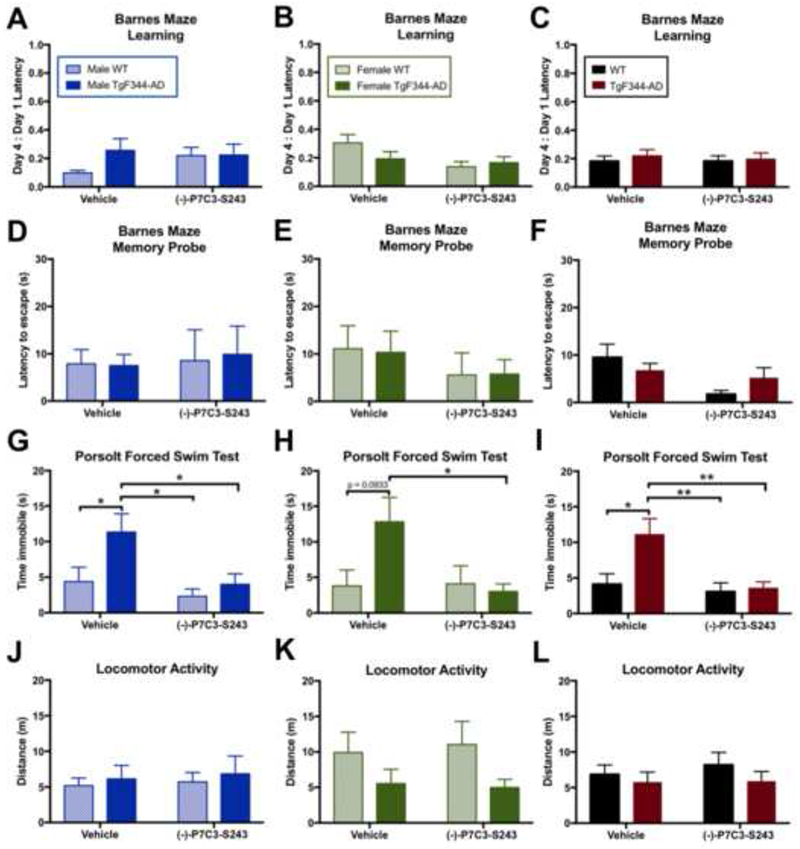Figure 2.

(−)-P7C3-S243 protects TgF344-AD rats from depression-like behavior at 15 months, before the onset of cognitive deficits. (A-F) No learning or memory deficits were observed at 15 months of age, regardless of sex, as assessed using Barnes maze. Barnes maze learning treatment effect: Male F(1, 32)=0.5419, p=0.4670; Female F(1,29)=3.861, p=0.0591; Combined F(1,65)=0.0734, p=0.7873. Barnes maze learning genotype effect: Male F(1, 32)=1.8020, p=0.1889; Female F(1,29)=0.7218, p=0.4025; Combined F(1,65)=0.3674, p=0.5465. Barnes maze memory probe treatment effect: Male F(1,30)=0.0979, p=0.7565; Female F(1,27)=1.2350, p=0.2763; Combined F(1,57)=4.7950, p=0.0327. Barnes maze memory probe genotype effect: Male F(1,30)=0.0092, p=0.9244; Female F(1,27)=0.0048, p=0.9454; Combined F(1,57)=0.0318, p=0.8591. (G-I) Significant depression like phenotypes in the Porsolt forced swim test (FST) were observed in TgF344-AD rats, also regardless of sex, and (−)-P7C3-S243 administration for 9 months protected against depression-like behavior. FST treatment effect: Male F(1,32)=6.456, p=0.0161; Female F(1,28)=3.133, p=0.0876; Combined F(1,65)=7.119, p=0.0096. FST genotype effect: Male F(1,32)=5.454, p=0.0260; Female F(1,28)=2.185, p=0.1505; Combined F(1,65)=5.253, p=0.0252. (J-L) Locomotor activity was comparable between all groups. Open field treatment effect: Male F(1,32)=0.1285, p=0.7226; Female F(1,28)=0.0150, p=0.9036; Combined F(1,60)=0.2470, p=0.6210. Open field genotype effect: Male F(1,32)=0.3605, p=0.5529; Female F(1,28)=4.5950, p=0.0412; Combined F(1,60)=1.296, p=0.2595. For each measurement, n=9-10/group for males, n=7-10/group for females, and n=16-19/group for combined sexes. Data are represented as mean ± SEM. Significance was determined using two-way ANOVA with Tukey’s post-hoc multiple comparison analysis. *p < 0.05; **p < 0.01.
